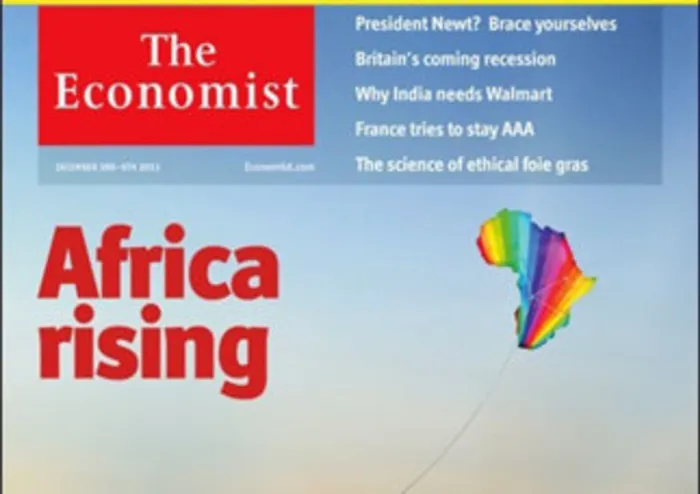Why KZN is ready to fly

"Africa has seen radical change in the Past 10 years and is open for business. It is not the same place The Economist described as 'the hopeless continent' on its front page in May 2000," said KZN Treasury economist Clive Coetzee last week. "Africa has seen radical change in the Past 10 years and is open for business. It is not the same place The Economist described as 'the hopeless continent' on its front page in May 2000," said KZN Treasury economist Clive Coetzee last week.
Africa is on the global economic radar like never before, but SA and KwaZulu-Natal need to position themselves more strategically to entrench their position as the trade gateway to the continent.
That’s the word of KZN Treasury economist Clive Coetzee, speaking at the KZN Economic Symposium in Durban on Friday.
“Africa has seen radical change in the past 10 years and is open for business. It is not the same place that The Economist described as ‘the hopeless continent’ on its front page in May 2000,” he said.
“Global investors are eyeing Africa like never before. The change is real; so much so that The Economist retracted the report from a decade ago in a December 2011 edition, which has a special feature with the words ‘Africa rising’ on its front cover,” he said.
“Africa has fundamentally changed… Many businesspeople are so preoccupied with India and China’s economic ascendance, they are not seeing the opportunities in Africa.”
Quoting excerpts from The Economist, Coetzee said: “In financial centres such as London, barely a week goes by without an Africa investor conference. Private-equity firms that a decade ago barely knew sub-Saharan Africa existed raised $1.5 billion for projects on the continent last year. In 2010 total foreign direct investment was more than $55 billion – five times what it was a decade earlier.”
He said trade between Africa and the rest of the world had increased by 200 percent since 2000. Inflation had dropped from 22 percent in the 1990s to 8 percent in the past decade. The International Monetary Fund expected sub-Saharan Africa’s economies to expand by 5.75 percent next year and several big African countries to hit growth rates of 10 percent.
Coetzee cited a 2011 World Bank report that said “Africa could be on the brink of an economic take-off, much like China was 30 years ago and India 20 years ago”.
O
ther key points included:
l Africa having 60 percent of the world’s total amount of uncultivated arable land.
l Africa having nearly double the number of cities with populations of over a million people than in the US.
l Its abundance of young people.
l Africa having half the world’s gold reserves and a third of its diamonds.
l Significant reserves of most natural resources.
l New discoveries of oil in Africa.
l Africa’s maturing tourism industry.
l Africa having 600 million cellphone users – more than Europe or the US.
l Democracy and peaceful handovers of power no longer being strange in Africa.
l Growing sophistication of opposition groups.
l The emergence of a new “professional class”.
“Africa is open for business and many experts believe Africa… may very well be on the verge of becoming the next India,” said Coetzee.
“SA stands to benefit from this, but cannot take its current position as the gateway to the continent for granted. You just have to look at the growth taking place in Nigeria and Mozambique.”
Coetzee said that with the Durban port dealing with more than 60 percent of SA’s containerised trade, KZN was a natural “gateway province”. This needed to be more strategically developed to take advantage of KZN’s logistics and innate maritime assets.
“That is why the development of the Durban dig-out port and the Dube TradePort air trade gateway are so important to capitalising on Africa’s future economic prospects… If you look at what has happened in Africa in the past 10 years, you could see a very different Africa in the next 10 years,” he said.
KZN development economist Professor Jeff McCarthy said the province’s logistics strength was a key factor to its future economic growth.
He said research he had done for the provincial government had shown “considerable dynamism, especially among smaller and medium scale enterprises” that were becoming more externally focused. These businesses were looking increasingly to the Far East for international business opportunities as well as doing business regionally with Gauteng and Africa.
“KZN also has some notable large JSE-listed firms such as the home-grown Mr Price Group, which now operates in more than 50 African countries. Unilever, a multinational, has its SA headquarters in KZN and has a growing focus on African market expansion.
“The Tongaat-Hulett and Illovo sugar groups are also home-grown in KZN, but both now get most profits from African operations. These operations are often directed by KZN personnel, because the company headquarters and research and development are here,” he said.